Kate Bowler: I’m Kate Bowler and this is “Everything Happens.” So you know sometimes life is just motoring along, and then out of nowhere the wheels fall off and suddenly life as you know it is veering off in an insane direction.
This podcast is about those times. It’s about the times when suddenly life isn’t taking you anywhere you hoped to go.
And what we learn when we’re stuck. Ever since my own diagnosis with stage 4 cancer I’ve learned a lot about dealing with life’s heartbreaking turns and I’m still learning, partly by having conversations with fellow travelers.
One of those travelers is here with me today. Her name is Lucy Kalanithi.
You may have heard of Lucy. She’s the wife of the late neurosurgeon Paul Kalanithi who wrote the bestselling beautiful book “When Breath Becomes Air.”
Paul died of cancer at 37 before he could finish the book. And Lucy carried this incredible manuscript to publication. So Lucy knows what it’s like to have this sudden shift off of the life she hoped for. And I wanted to talk to her about what she learned in the process, especially what she learned about love.
It is so good to see you here today.
LK: Thanks for having me.
KB: So your life with Paul is an amazing love story. What made you fall in love with him in the first place?
LK: So Paul and I met in our first year of medical school and he fell in love with me at first sight and then I knew he was the smart intellectual guy in our medical class. But I realized about three weeks into school that he had a fake mustache on his medical student ID.
KB: Stop it.
LK: Isn’t it great? And he’d been a comedy writer in college and I had no idea how funny he was and pretty irreverent and just thoughtful and alive. And so I fell in love with him quickly.
KB: I love the stupid things like I realized I loved Toban when I saw he was wearing a tank top that was way too loose at the front.
Every now and then he would sort of look down and notice — and then forget he was wearing it. Like I said it’s funny how you just fall in love with the stupid little things.
So what are some of the things that you came to love about him once he was sick.
LK: So Paul when he was sick really retained this sort of sparkly wry sense of humor. And I think one of the things they loved the most was thinking back on a number of conversations we had and just how morally clear he was and how thoughtful he was about living despite being right up against suffering and dying.
And there was a conversation we had that was really important and crystallizing when we were talking about whether to try to have a child, despite his illness or in the setting of his illness. And I was really worried about his experience and what it would mean to have a child who likely wouldn’t remember him and have to cope with that joy knowing he was leaving it behind.
And so I asked him really directly and said “You know I’m worried about you and I’m worried that having to say goodbye to a child will make dying more painful.”
And he looked right at me and said, “Wouldn’t it be great if it did?”
And that idea of really willingly taking on this really profound experience that for everybody, sick or not, is full of joy and full of uncertainty and maybe full of pain – it was just so beautiful and it was like he really had this sense of what it means to be alive.
And he kept that. And then the other thing was he was so nice to me. I mean like even that thing of saying “I want you to remarry.” It’s just like that is the most crushing, heartbreaking thing to say to your spouse. But it’s so thoughtful.
It’s like really saying, “I’m willing to talk about this out loud. I’m willing to acknowledge what’s going on. I really care about what’s happening to you.” It’s just so profound and beautiful and generous. It’s like, “I love you beyond who you are with me.”
KB: That’s an intense love. Because you know there’s always those stupid songs like “I like me better when I’m with you.”
And I’m like “Well good for you, We’re happy for you. Not sure that’s love.”
It’s like he loves you beyond himself as a whole and complete person. Even when he comes to the end of himself.
LK: It’s totally bringing tears to my eyes.
KB: That’s a really big love. Because that’s what I think of when I think of you — I think of really costly love.
LK: There is this really amazing raw,genius writer named Emily Rapp Black who actually helped me write the epilogue to Paul’s book and she lost her son to Tay Sachs and she said this beautiful thing at one point she said, “These are the wages of mortal love.” And it’s that, right.?
KB: This is what it will cost you to love this dearly. But your decision to have a kid — Can you tell me a little bit more about the calculus behind deciding to love each other and then love someone else in the midst of loss?
LK: Yeah. So Paul and I had thought we would have a child at that moment in our lives anyway which was when he was finishing his neurosurgery residency and I was working as an internist. And it was sort of like “Oh when he’s done with his training things are going to be easy and he can be a regular surgeon and not a resident and blah blah.”
And then that was right when he got sick. And so it was when things were supposed to get easier and then they didn’t. And we sort of looked at each other and thought, maybe we should still think about doing that. But both of us worried we were crazy and so we talked to our families and they were really supportive.
Gwyneth Paltrow said in an interview Wednesday that when you decide to have a child it’s like you’re not just having a baby and let’s hold the cute baby — it’s like you’re adding another chair to your family’s table.
And that I love. And that’s what it felt like. Sort of like we’re a family and someone else could be in this family, too, and that’s the thing we wanted to do before and that’s the thing we want to do now.
And I think if you are planning to have a child you’re sort of like “Is this meaningful to me? And do I think I can provide this child with a good life?” And I think we could answer yes, still. And our family is a huge part of that.
KB: I like that “seat at the table” because when I think about Toban it was like when we got married it was practicing saying “There’s something here that makes more things possible.”
And then when we had Zach it was like “And now we’re making more things possible.”
And then now not being able to have another kid, I’ve been practicing almost saying “This love takes up all kinds of space.”
You know just because some things fall away, it doesn’t make it incomplete. Love just takes up a lot of space. ‘m really grateful for that.
LK: Yeah. And I think there’s something there about making decisions — like in the recent interview that you did in TIME magazine that is so beautiful.
You said something in it about — there’s something beautiful about how you get sick and you double down on the life you have — you’re not wishing for something else.
And I think there’s all kinds of decisions like that — even choosing a career and sticking with it. It’s to the exclusion of all other careers and I think it is important to commit to your thing.
It’s same way if you’re in a relationship somebody: It’s so romantic to just wake up every single morning and be like “I’m here again. And I’m here again. I’m here today and I’ll be tomorrow.” That is so romantic. So I think that’s kind of what you’re doing, too, with your with your one kid.
KB: I also like to tell him — which I just took from a movie – “The triangle is the strongest shape in nature.” Cause there’s three of us. I hope it’s true. It could be that it’s a circle.
LK: Don’t look it up. Don’t google it. Don’t ruin it.
KB: I want to ask you about what it was like after Paul died to bring the manuscript to fruition. Because I’m sure that cost you something, too, to grieve publicly, to maybe grieve for this long in a way.
Because writing a book takes forever. And then you have to talk about the book, after creating the book was so private and lovely and intimate — this interior world, like a diary. And then all of a sudden you take it to the circus.
So what was it like being like the legacy-bearer of that kind of love?
LK: It was super-helpful.
I think some of it was our personality types. Paul was introverted and wry, loved writing. And I’m extroverted and love talking — I was made to do a book tour and I will never write a book.
But it was super-helpful on the book tour, to talk about Paul and talk about grief. Because I think that stuff can be so shrouded and isolating. And people are scared to ask you about the thing and are they going make you cry?
So just to have a vehicle for immediately connecting was very helpful. And then right after Paul died, the only thing I wanted to do was read the manuscript and work on the manuscript and help choose the cover for the book and just be doing things in service of Paul. Because especially when he was sick we were so fused, you know?
Like there was this moment during Paul’s burial where the pastor and Paul’s casket were going down this hill. And I ran ahead to walk next to it. I was just like “He doesn’t have to go by himself — I’m going to go.”
And so I just had this really intense desire to keep being with him or keep taking care of him. But it wasn’t just taken care of him, it was like a partnership.
And so to keep doing the book was part of that, because I was sort of insane after Paul died. Like I was sort of sleepless and I had a really severe tingling in my hands. I was functioning, but not who I am.
And so I felt like myself when I was working on the book. And then it took me a while to figure out how to be in the world otherwise. And the book was this sort of lifeline. And I loved it. It was good.
And then all these weird things have happened as a result where it’s like I’m meeting you I’m friends with you — I never would be friends with you. And so it’s like big gift to me.
And my career is really different as a physician. I talk about humanism and medicine and end of life care and these things that are soulful and personal. But I have this platform to do it. I think Paul would be really excited to see how it turned out, obviously.
KB: Well I was so glad use the word “crystallize” before. He had such crystallized writing. I mean that’s the way diamonds are made. You can see all the pressure that created that much beauty and clarity about life and its meaning and the significance of time and it just oozes with love — so much love for you.
And one of the things that helped me process was… I’ve just always been afraid that I’m going to be the thing that happens to everyone and it was helpful to see you seem grateful for how much it cost you.
LK: Oh yeah. Like I would I would do it again in a second.
KB: Yeah, I get a lot of letters from people where their person left in the middle of it. I mean you stayed, you doubled down.
Do you remember how you did that math in your mind, about loving someone even though you could tell at the front end, “This is going to hurt?”
LK: So Paul and I got his cancer diagnosis by looking at his scan ourselves, because he was getting the medical care and workup at the hospital where we worked. And so he just logged in to the computer and then you’re like scrolling up and down through the images and it was so obvious there are tumors in his lungs and his spine was partially deformed by tumors. And it was totally wordless looking at the screen.
And I just remember I think I literally thought “I will hold him as he dies” or “I will be there when he dies.” Which you know if you marry somebody hopefully that’s the case, right? You literally say it in your wedding vows. But I think the more present that idea gets it’s like it is like a reaffirmation of what you’re doing.
I was like, “Turns out this is the thing. This is the center of life. This is the thing we’re going to do.”
And the crazy part was Paul and I hadn’t been communicating that well right before that. He was working 90 hours a week and we were both working hard and trying to figure out what we were going to be doing after residency. And it was this really intense time.
And I think the cancer diagnosis was like a nutcracker — it got us back into the soft, nourishing meat of our marriage. And I don’t think it’s as simple a narrative as “And then we got cancer and everything was great, and it saved our marriage.” But it was cementing.
And I think this kind of stuff — like you are alluding to with the people who left — it can drive you part or it can bring you closer together. And I think some of that does have to do with communicating and then being willing to be a witness.
KB: Yeah yeah. I think if if I asked Toban like he would say the day of my diagnosis as the day he knew I really loved him.
LK: Why?
KB: Because he said I just looked at him with so much love. Everything was falling apart. It was just falling apart so fast. I don’t know. It was oddly galvanizing.
Just to know — just what you’re saying – “Oh, this is the thing we do together. And this is who we are in it.”
And sometimes it’s grouchy. I mean sometimes it’s super-grouchy.
LK: But it is like your house is on fire, and what do you reach for? You know what it’s like. Obviously you reach for Toban, but he can see it.
KB: My dad said you reach for your dissertation. But that was before. That’s when it was just paper copies.
There used to be fire drills in the student hall. All the women he said would run out holding their babies and all the men holding their dissertations, which sounds true.
I think part of what might surprise people was that Paul immediately gave you permission to remarry and that makes sense to me. It’s like a loving beyond yourself. But how did you feel about it at the time?
LK: Oh I thought it was so…I guess a mix of things. It felt really stark to say that because it’s just so intense to hear that from your husband. It’s like the last thing you want to do is remarry somebody else. But it also was this real acknowledgment of what was going on and being willing to talk about it and then really caring about me and what happened to me. And I sort of was hit with the force of all that stuff. I was like “Gosh what an insanely generous thing to say.”
And then it also was sort of radically permissive, too. It was like OK, whatever is happening with me in the future, I don’t have to wonder or feel guilty or weird. It was such an acknowledgement of me as a person.
And then Paul did it in one other way, too. So we were making advance directives or talking about medical care. And I feel like one of the big moral questions of our time in American modern medicine is “How do we use the technology we have wisely and judiciously?”And you know CPR or life support machines — if you’re really really sick they don’t necessarily help you and they might make you feel worse or suffer more.
And I think Paul and I were worried about that. There’s sort of the dominant battle narrative in medicine.
KB: Yeah, “just keep fighting.”
LK: Yeah and it’s like how do you know when it’s time to stop or shift? And I think he could tell that I was stressed out about it.
And I remember him saying “Just so you know, if I’m not able to communicate or I end up in some situation medically that you feel like didn’t fit me or there is family conflict or something, Don’t worry about it. It’s OK.” You know, absolving me of feeling responsible.
And then he said “And also, the last day of your life is not the sum of your life. The sum of your life is the sum of your life.”
And so he’s like “Just don’t worry about my last day. It’s OK.”
And he said it well ahead of anything. He just was thinking about what I was going to worry about. He was so generous.
KB: In fact he gave you permission to fall in love again.
LK: So I have fallen in love with somebody. And it’s so nice. And I’m utterly convinced that if Paul were to meet John he would like him and he would also punch them in the face first.
KB: There’d be a homicide yes and then there’d be a resurrection.
LK: Then there’d be shaking his hand and being like “Good job. Welcome.”
John recently said “I feel like I’m starring in a romantic comedy that I would not buy a ticket for, because it’s too implausible.”
So now having fallen in love, I have this other family in our lives now, which is John and his two children Freddie and Benny.
John’s a widower and his late wife was a writer. I initially fell in love with her and didn’t really know anything about him, but I loved her writing. Her name was Nina Rigs and she died of breast cancer and wrote a memoir called “The Bright Hour” and a really beautiful essay in The New York Times called “When a couch is more than a couch.”
I briefly communicated with her when she was sick and then I wrote a blurb for the cover of her book, which I’ve only done three times total, including for you.
And she also was able to crystallize some of those really poignant, painful, beautiful things the way that I feel like you can, and in the way that I felt like Paul could. I hemmed and hawed about writing to her when I knew she was in hospice. Her literary agent had told me and this mutual friend we happened to have had told me. I was like “Can I really write to her, what I’m going to say?”
And I just wrote her this tiny little short email about how I was her fan forever. And I was like she can ignore it if she wants.
And you know even having been through a thing, I had to Google how to write a condolence card. It’s not like you don’t get less awkward.
So I wrote to her and then her husband wrote back and said “Nina is too sick to manage her e-mail but she wants to know whether I can contact you for support. And I’m also going to have to do a book tour in the wake of Nina dying.”
And so I was like “Yes, sure, contact me.” And Nina was sort of like the character reference for John. And then I started writing to John and we wrote for like two months straight, really frequently, about grief and about everything — especially about putting your life together after somebody dies.
And how do you figure out how to go on without somebody. And also with them at the same time, because of missing them and loving them forever. And then we fell in love as we were talking about that stuff, which seemed insane.
I was like “Don’t fall in love with me, don’t put your thing on me. Be careful. Both of us are gonna get hurt and you’re insane.”
But then he is just so charming and smart and astute and great.
KB: I’m just processing how many things you have in common.
LK: But that’s the thing that’s actually the weirdest. Independently of that, I think we’re really good match — like it’s really weird. It’s sort of like a weird coincidence. And I’m really different from Nina, apparently.
And he’s really different from Paul. But it’s funny it’s so weird. I think all four of us share some of the same values. And I don’t know, it’s weird. It’s like we’re in a relationship and it’s a foursome and two people are dead.
It’s really wild. It’s really interesting and also I feel super lucky that I could get to know Nina through the book and he could get to know Paul. It’s just bizarre. And then you know there’s all this other new stuff to navigate. Like I have my daughter and he has two sons.
KB: But you’re connected by love. You’re totally connected by different kinds of love — love that reaches into the past and love that reaches into the future.
LK: It’s wild.
KB: I think maybe the bit about the kids — for me at least it’s the most creative, hopeful place I find for making space for love in my life. Those kids also just have beautiful, important needs and insane narcissism. Right? Because every kid is totally narcissistic.
LK: When John, Freddy and Benny came to visit us at our house, Paul had an Xbox 1 and he played it a lot when he was sick, he played FiFa and this other weird fantasy game.
Freddy, who was 10 at the time – John’s son –was like “Could we play the Xbox and also like, is there any way we could have it? Because if Paul’s not using it maybe we could have it?”
And I was like “Well he’s not using it because he died. So we could talk about that.”
And Freddy’s like “I’m so sorry I didn’t mean to say it like that.”
But it’s like “I’m 10 and I’m sorry. I’m sorry your person died.”
KB: And also “I want this Xbox.” You described this moment in the backseat of a car. Can you remind me of what happened?
LK: OK. So I had this moment kind of recently where we were spending time with their family. And in the backseat of the car were Katie, my daughter, and Freddy and Benny. And in the front seat it was me and John.
And Katie, apropos of nothing, earlier that evening had said “Eat the poop.” Which is like so rude if you’re three.
KB: Yeah that’s forbidden.
LK: Ultra-rude. And so I kind of laid the smack down. And I was like “You are not allowed to be rude.” And then she said it again in the car on the way home. And I was like “You are allowed to make noise in a tunnel.” We have a rule in our family where you need to be quiet and respectful in the car and not distract the driver unless you’re in a tunnel, and then you can make any noise you want—only in a tunnel.
So I said “You can say it in the tunnel if you choose to.”
So we go through a tunnel a little while later. And Katie and Bennie are like “Eat the poop” in the tunnel. It’s now evolved to saying “Drink the pee.” But I kind of lost it in the car because I thought it was really funny and charming and John was like getting kind of mad.
Finally John got overwhelmed and was like “Eat the poop” and yelled it really loud. The children lost it and it just was this moment of ridiculous levity.
And I was like, this is not what we thought our lives would be like — any of us — sitting in this car together. But it was one of the most joyful moments of my whole life since Paul died, certainly.
It was a mix of just unexpected and absurd and really joyful.
KB: That’s it, we’re doing it.
LK: Yep. “Drink the pee.”
KB: Thank you so much for talking to me today. You really are the best. I loved it.
KB: I think my favorite thing about Lucy is that she’s brave — brave in love. Wasn’t that such an amazing conversation that Paul and Lucy had about having a baby?
She said “If we have a baby wouldn’t it make dying harder?” And he said “Wouldn’t it be great if it did?”
I’m in a really weird place right now because I have to make really unusual calculations about how I should live because of my unusual health situation.
So I have a stage 4 cancer diagnosis and my treatments have been good. But it means that I am in this three-month liturgy, where every three months I go in and they put dye in my veins and they measure to see whether the tumors are growing.
And if the tumors aren’t growing then they smile and they schedule another scan. Which means that my life takes on this three-month rhythm. I live for three months and I take a deep breath and I hope to start all over again. And I will probably do that for the rest of my life.
It means that I have to make very calculated decisions about how I spend my time. Like, what should I care about? What matters if everything hangs in the balance?
And this conversation with Lucy gave me a new beautiful way to think about how to make hard choices. Is it beautiful? Is it brave? If I were to love it would it hurt like hell to leave it? While then, good.
###
Next time we’re going to talk to one of my favorite, hilarious people about a life which embraces awkwardness. It’s Alexandra Petri and she’s the author of “A Field Guide to Awkward Silences.” And she’s the only person I know who has run an entire dog course as a human contestant. She’s amazing. She will be funnier than anyone you know, so just accept that now.
“Everything Happens” is produced by Duke University in association with North Carolina Public Radio WUNC.
Support comes from Faith and Leadership, an online learning resource. This podcast is produced by Beverly Abel and Alison Jones. Sound engineering is by Dennis Foley with assistance from Ivan Panarusky. Special thanks to Amanda Hite and the Beat the Change Revolution team and Random House.
And we’d love to hear from you. If you like what you’re hearing, please post a review on iTunes. And while you’re there be sure to hit that “Subscribe” button.
You can find me on Facebook (always) Instagram (often) and Twitter (every day) @KateCBowler Let’s chat. Until next time, this is “Everything Happens” with me, Kate Bowler.

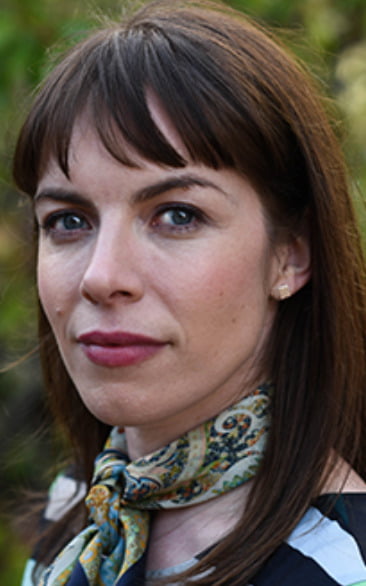
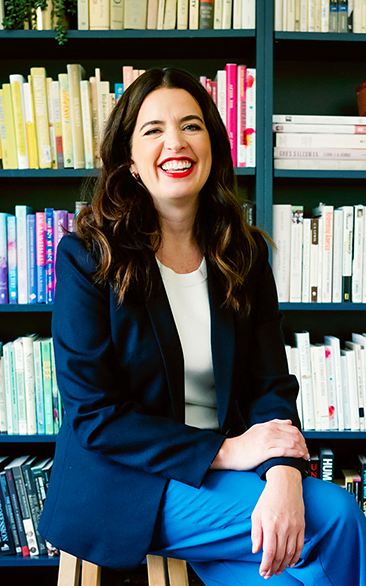

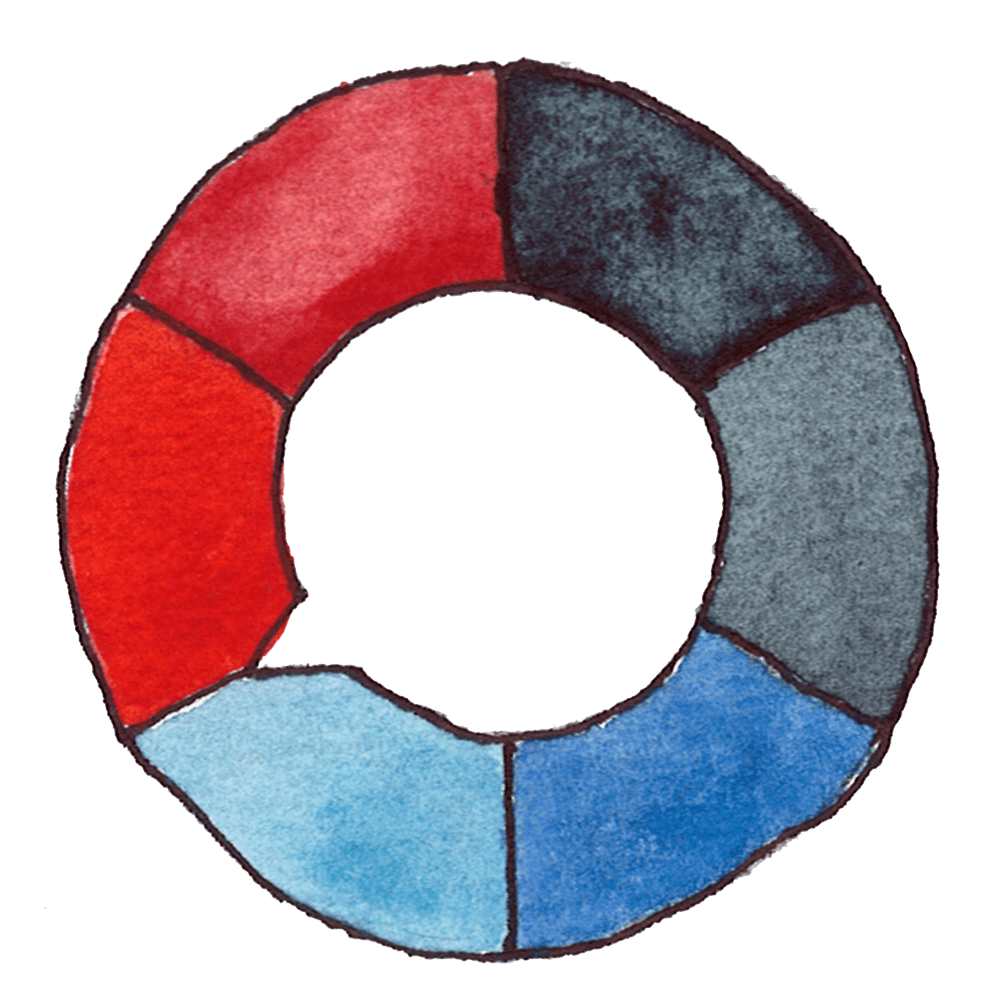






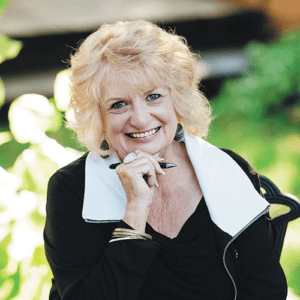
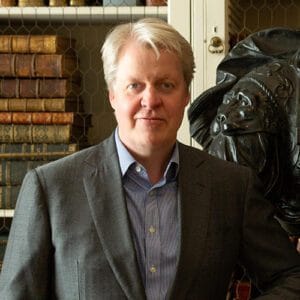
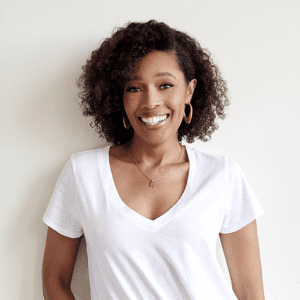
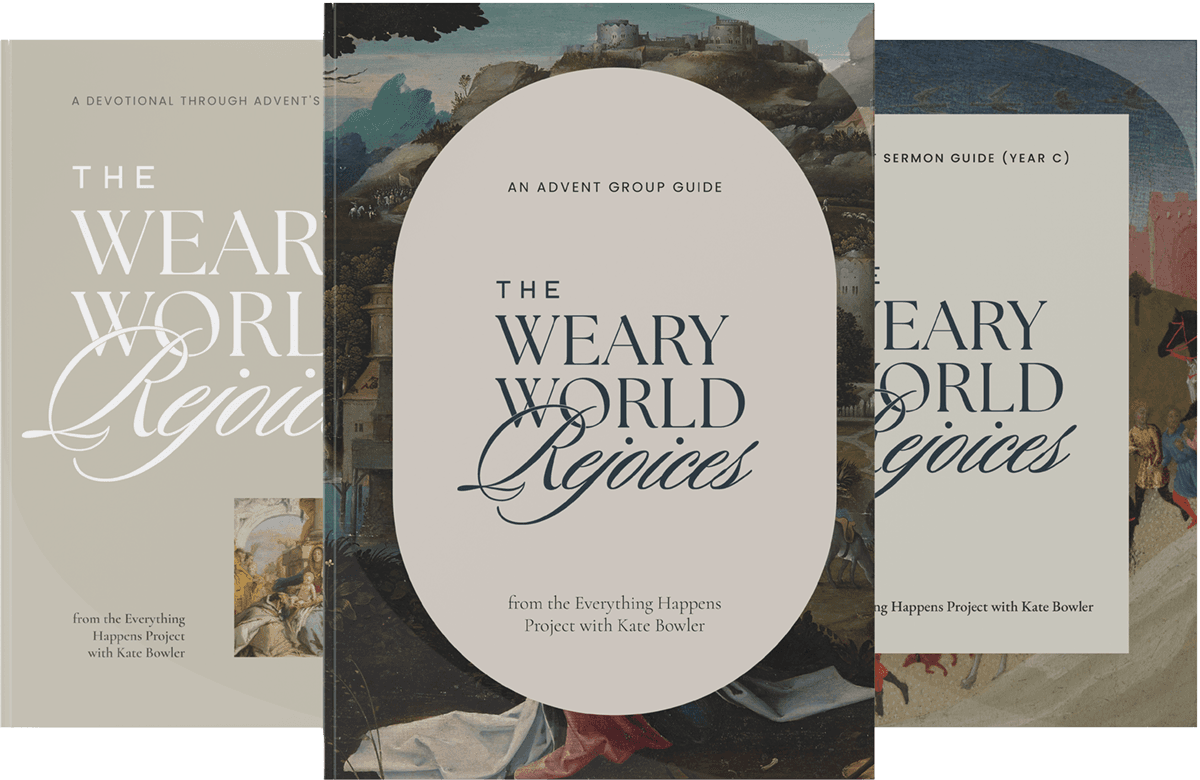
Leave a Reply